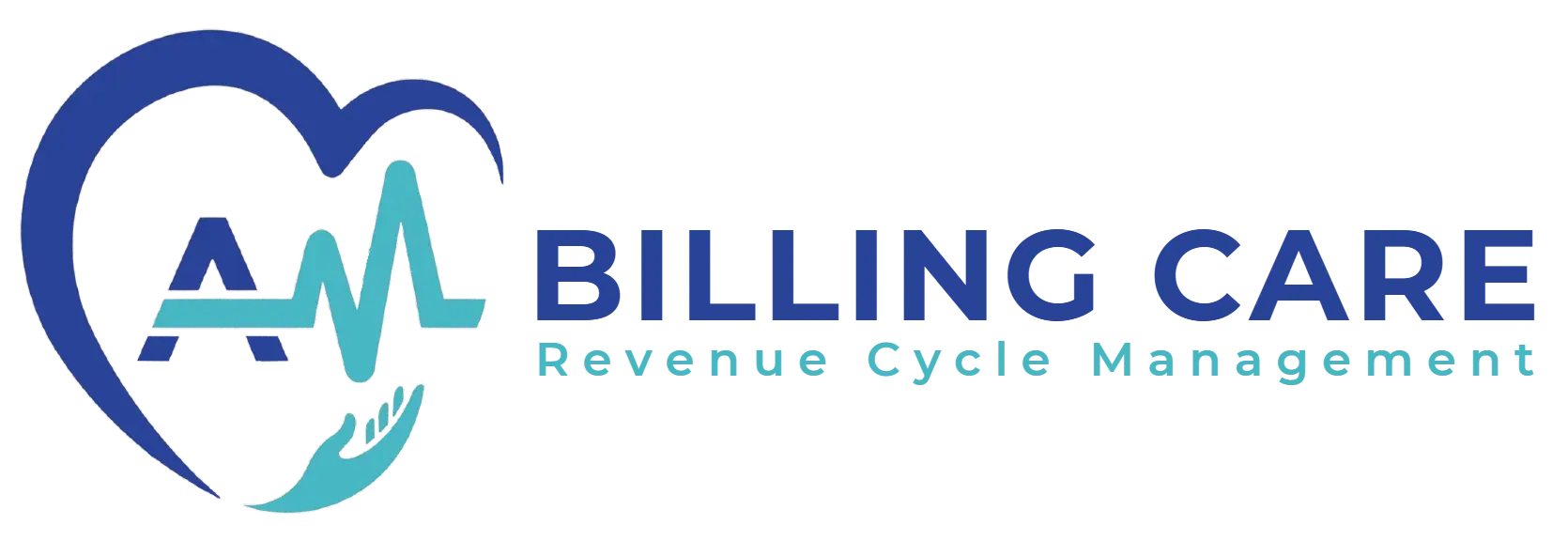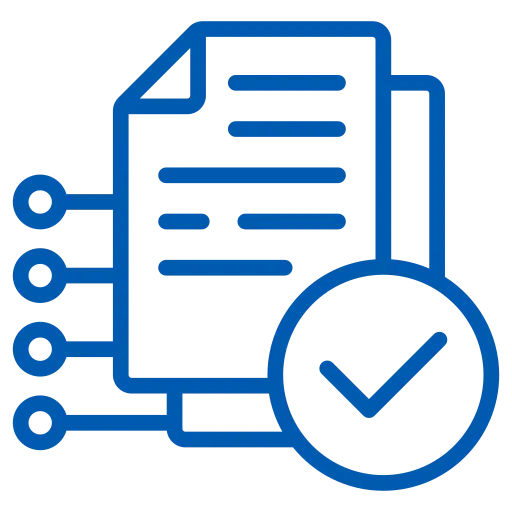Trusted Physician credentialing Services
Enhance your healthcare practice with our tailored and seamless Physician Credentialing Services. Our skilled credentialing specialists streamline the enrollment process, helping you save time and resources while maximizing your revenue opportunities.
Physician Credentialing Services Simplified
Register and regularly update your Council for Affordable Quality Healthcare (CAQH) profile to streamline the process of managing provider records for your participating health plans.
Contract Solutions
Our negotiation experts specialize in maximizing reimbursement rates by skillfully negotiating contracts with insurance providers to secure the best terms for your services.
0{{current_slide_index}} | 0{{total_slide_count}}
We're here to help
We’re available 24/7 – Schedule a call with one of our experts now.
What is Physician Credentialing in Medical Billing?
Physician credentialing is the process of evaluating and verifying the qualifications and background of healthcare professionals to ensure they meet the requirements of healthcare organizations and insurance companies. However, this process is complex and time-consuming, often requiring extensive documentation.
AM Billing Care offers top-tier physician credentialing services to help healthcare providers navigate these challenges, allowing them to focus on delivering exceptional patient care.
With years of industry experience, we are well-versed in the complexities of credentialing. Our experts have deep knowledge of regulatory bodies and insurance carriers, along with established relationships with major healthcare providers. This expertise enables us to streamline the credentialing and contracting process, ensuring our clients receive outstanding service and results.

Contracting And Pricing
AM Billing Care specializes in providing exceptional healthcare provider credentialing and contracting services. Our credentialing experts manage the entire process efficiently, ensuring a seamless experience for your practice. From responding to payer requests and completing the credentialing process to collecting necessary documents, we handle everything from start to finish.
We prioritize meeting re-credentialing deadlines by assigning a skilled and dedicated team to initiate and track the process. Our team works closely with you to complete initial applications, conduct background checks, and ensure timely approval for your providers.
Medical Credentialing Services We Offer
Medicare and Medicaid
Commercial Insurances’
Provider Enrollment
Credentialing Services
NPI Registration (Type I and Type II)
CAQH Registration and Maintenance
MCR DMEPOS Enrollment
Hospital Privileges
Contract Negotiation
Revalidation & Re-credentialing
Reimbursement Issues Audit
Providers' State License
DEA Certificate & Renewal
CLIA Registration
Our Proven Methodology Simplified Physician Credentialing Process
Physician credentialing and contracting play a vital role in any healthcare organization. AM Billing Care offers streamlined credentialing and contracting services that help grow your practice and expand your patient reach.
Our medical credentialing experts are skilled in simplifying the enrollment process, saving you time and resources while maximizing your revenue potential.

AM Billing Care maintains a 24/7 team of credentialing specialists to handle all credentialing tasks continuously. This ensures consistent service that effectively meets the needs of healthcare facilities and providers at any time.
Our medical billing experts maintain and update PECOS and CAQH credentialing portals to ensure your information remains current and accurate. We handle revalidation and enrollment for healthcare providers participating in Medicare programs.
Our top priority is simplifying credentialing for providers across multiple insurance plans. With exceptional expertise, we streamline the credentialing process for healthcare practitioners nationwide.
Maintaining data accuracy and resolving contracting issues are critical aspects of successful credentialing. Healthcare facilities must ensure compliance with legal standards, establish clear contract terms, and implement strong data management practices to support efficient credentialing processes.
Our team promptly addresses any contracting-related issues and conducts regular audits to maintain the integrity of your data.
Physician credentialing compliance is essential in healthcare to verify providers meet all requirements for participating in healthcare networks and practicing medicine. This process involves adhering to numerous guidelines, regulations, and best practices.
Our medical billing professionals maintain compliance with NCQA standards through their expertise and ongoing training. They stay current with evolving regulations and industry requirements to ensure proper credentialing.
Medical credentialing is a continuous process requiring healthcare providers to maintain compliance with regulations, uphold qualifications, and meet healthcare organization standards. AM Billing Care ensures practitioners maintain proper credentials and meet all necessary standards to continue practicing medicine.
What Makes AM Billing Care Exceptional?
As a leading organization with a track record of exceptional achievements, AM Billing Care takes pride in consistently delivering timely and accurate results, boosting revenue, and helping clients achieve their financial goals. We use advanced expertise to streamline the Medical Billing process, improve productivity, reduce errors, and provide optimized customer service. AM Billing Care has a team of highly experienced and skilled Medical Billing and Coding experts. Our expertise goes beyond managing billing requests—we also help you achieve your financial goals in the Revenue Cycle Management industry.
Why Do Healthcare Professionals Choose Our Medical Billing Services?
Medical Billing Software We Leverage for Revenue Cycle Management
Here are some Industry top listed EHR being operated by us.



















Frequently Asked Questions
Necessary documents vary depending on the insurance plan and the type of healthcare provider. Here is a list of some basic documentation that is usually required. Documents for individuals:
- Practitioner License(s)
- Malpractice Insurance (Certificate of Insurance)
- DEA (federal) and state CDS certificates
- Board Certification(s)
- Current driver’s license
- CLIA Certificate
- Business License
- Letter of bank account verification
- IRS Form W-9
Insurance Credentialing is a vital step in ensuring that healthcare providers are paid correctly for their services and don’t suffer any financial losses. In order to obtain reimbursement for medical expenses, doctors and other healthcare professionals must provide insurance companies with proper verifications.
Necessary documents vary depending on the insurance plan and the type of healthcare provider. Here is a list of some basic documentation that is usually required. Documents for individuals:
- Practitioner License(s)
- Malpractice Insurance (Certificate of Insurance)
- DEA (federal) and state CDS certificates
- Board Certification(s)
- Current driver’s license
- CLIA Certificate
- Business License
- Letter of bank account verification
- IRS Form W-9
The turnaround time for insurance carriers varies, so there is no single answer to this question. Major Insurance normally takes between 90-120 days to complete the process, while smaller carriers and insurance plans may take longer.
When providers submit a participation request to a commercial carrier, they need to complete two processes. The first is credentialing, where the carrier verifies all provided credentials and presents them to their committee for approval. After providers are approved by the credentialing committee, they are directed to the contracting process, where their participation is approved, and they are provided their effective date. Company offering medical credentialing services also makes impacts on the duration.
If any insurance company denies your credentialing application, you have the right to appeal the decision. To file an appeal, you need to submit a letter to the insurance company that clearly and professionally explains why you believe you should be credentialed. In your letter, you should specifically address the reasons why your application was denied and include any additional documentation, such as letters of recommendation from colleagues or patients.
Once you have submitted your appeal letter, the insurance company will review it and provide a decision. If your appeal is successful, you will be credentialed with the insurance company. However, if your appeal is denied, you may file a complaint with your state’s insurance commissioner.
Medicare providers must revalidate every 5 years, while DMEPOS suppliers must revalidate every 3 years. Individual providers can use PECOS online or fill out the paper application. Groups or suppliers must complete the mandatory application. Establishing Electronic Funds Transfer is required for group records. Responding to the revalidation letter within 60 days is crucial. Failure to respond in time may result in the termination of billing privileges.
NPI 1 functions as your personal identification within the healthcare field, similar to a social security number. It remains linked to your professional journey and is exclusively assigned to you as the practitioner delivering services.
On the other hand, NPI 2 is an identifier for organizations, representing the location where services are provided. It can be associated with the employer’s company name for those working under an agency or with their business name for those in private practice.
We strongly recommend that businesses with a tax ID obtain an NPI 2. This is essential for establishing contracts with insurance panels at the organizational level, ensuring proper billing and payment for services. This becomes especially important as businesses and teams expand.
Additionally, certain insurance panels like Medicaid, Medicare, and BCBS require an NPI 2 for credentialing if the business has a tax ID.
Insurance panels often begin their process by referring to the information in your CAQH profile. When a healthcare provider submits an application on the panel’s website, the application undergoes a thorough review, and during this review, the panel frequently consults your CAQH profile to verify the information you’ve included in your application.
Medical credentialing services include a procedure to assess a provider’s suitability for inclusion in an insurance network, conducted before their membership. Recredentialing, which is performed periodically, typically every 1-3 years following the initial approval, aims to confirm the accuracy and currency of the provider’s details on the insurance panel.
Certainly, when you apply for credentialing through our organization, you have the freedom to choose the specific insurance networks you want to be affiliated with, and you can also specify the ones you’d like to exclude. Typically, most doctors working in outpatient settings opt to become credentialed with approximately 7-8 insurance providers. On the other hand, hospital-based physicians often choose a broader range, usually around 10-15 payors, to accommodate patients with various insurance plans who seek treatment within the hospital. In situations where physicians practice in the tri-state area, which denotes a location at the meeting point of three states, such as our physician-owned practice, it is customary to seek medical credentialing services with as many as 25 different insurance networks.






















